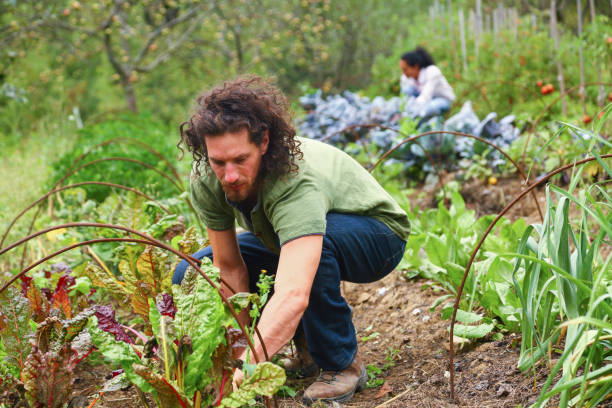Practical Courses for Sustainable Farming and Resilience
Discover practical agriculture courses that combine traditional know-how with modern science to help you start or improve a farm. From hands-on soil and livestock training to online farm business classes and community-led workshops, these programs teach sustainable agriculture, organic methods, regenerative practices, and farm management for real-world results.

Practical Courses for Sustainable Farming and Resilience
What sustainable agriculture means in practice
Sustainable agriculture focuses on producing food and fiber today while safeguarding the ability of future generations to do the same. Training programs in this area teach learners to manage soil fertility, conserve water, protect biodiversity, and reduce reliance on synthetic inputs. Students learn to view the farm as a system where crops, livestock, people, and surrounding ecosystems interact. Courses often include monitoring methods for environmental performance, strategies to lower chemical use, and practices that build resilience to shifting weather patterns. Social and economic dimensions are also covered, so participants understand how to keep livelihoods viable while preserving natural capital.
Turning science and tools into smarter farm decisions
Modern farming courses bridge research and day-to-day operations. Instruction typically covers crop and animal husbandry, precision tools such as GPS-guided equipment and sensors, and methods for collecting and interpreting data on yields and inputs. Practical modules teach machinery safety, greenhouse and protected-crop production, and postharvest handling to reduce losses. Business training addresses record keeping, budgeting, regulatory requirements, and pathways to meet certification or grant criteria. Strong programs tailor content to local soils, climates, and markets so graduates can apply techniques that are relevant and profitable in their region.
Training pathways and formats
There is a wide array of options to fit different needs and schedules. Short workshops may focus on a single technique like composting, seed saving, or drip irrigation. Certificate and diploma programs combine classroom learning with on-farm internships and project work for deeper competence. Apprenticeships and mentorship models provide immersive, long-term learning for those entering farming as a career. Online courses offer flexible theory modules, while blended formats add field days, demonstrations, and one-on-one coaching. Many colleges, extension services, NGOs, and private providers present tiered pathways so learners can begin with basics and progress to advanced agronomy or farm management qualifications. Local co-ops and community networks are often invaluable for hands-on sessions and peer learning.
| Course type | Typical length | Common focus | Indicative cost range |
|---|---|---|---|
| Short workshop | 1 day to 2 weeks | Composting, pest management | $20 - $300 |
| Certificate | 2 weeks to 6 months | Farm business, soil science | $200 - $3,000 |
| Diploma / apprenticeship | 6 months to 2 years | Comprehensive farm ops, internships | $1,000 - $10,000 |
Costs are indicative and may vary; contact providers for exact pricing.
Learning organic production
Organic farming courses concentrate on building fertility and plant health without synthetic fertilizers or pesticides. Topics include soil biology, compost and manure management, crop rotations and cover cropping, and organic-approved pest and disease controls. Trainees practice the record keeping required for certification and study market channels that value organic labeling. Instruction emphasizes preventative ecology-based methods that reduce problems through diversity and soil care, rather than relying on reactive chemical treatments. Courses also discuss consumer expectations and labeling to help producers price products accurately and avoid overstating attributes.
Can regenerative agriculture be taught effectively?
Yes. Regenerative agriculture can be taught when programs combine theory with ongoing field practice and adaptive learning. Curricula often cover building soil carbon, minimizing tillage, using multispecies cover crops, integrating livestock into cropping systems, and designing whole-farm plans that restore ecosystem functions. Measurement techniques for soil organic matter, water infiltration, and biodiversity indicators are included so learners can track progress. Because regenerative tactics must be adapted to local conditions, the best courses emphasize experimentation, careful record keeping, and iterative adjustment. Many programs also facilitate collaboration with extension agents, researchers, and peer networks to scale practices across landscapes.
Choosing the right program for your goals
Begin by clarifying what you want to achieve: hobby-scale food production, transitioning an existing farm to organic, building a regenerative enterprise, or gaining business skills to scale. Consider how much hands-on time you need, whether you require formal certification, and how the curriculum addresses local soils, climate, and market realities. Look for courses that blend classroom theory with fieldwork, on-farm mentorship, and connections to local services like extension, seed suppliers, and market outlets. Reviews, alumni outcomes, and provider partnerships with research institutions are useful indicators of program quality.
Putting training into practice
Training is most valuable when paired with active application. Keep clear records, run small trials before adopting whole-farm changes, and track environmental and economic outcomes. Join local grower groups, participate in co-op days, and seek ongoing mentoring to refine techniques over time. Whether your focus is organic certification, regenerative soil building, or modern precision tools, combining structured learning with hands-on testing and community support creates the strongest pathway to a resilient, productive farming enterprise.
Conclusion
Well-designed agriculture courses give practical routes to improve sustainability, productivity, and business resilience. From short technical workshops to in-depth apprenticeships, these programs equip learners with skills in sustainable and organic production, regenerative practices, and farm management. Selecting the right course depends on your objectives, the level of practical experience you need, and the specific context of soil, climate, and markets. A balanced program that mixes classroom instruction, field practice, and local partnerships helps farmers implement techniques that strengthen both farm viability and environmental health.






